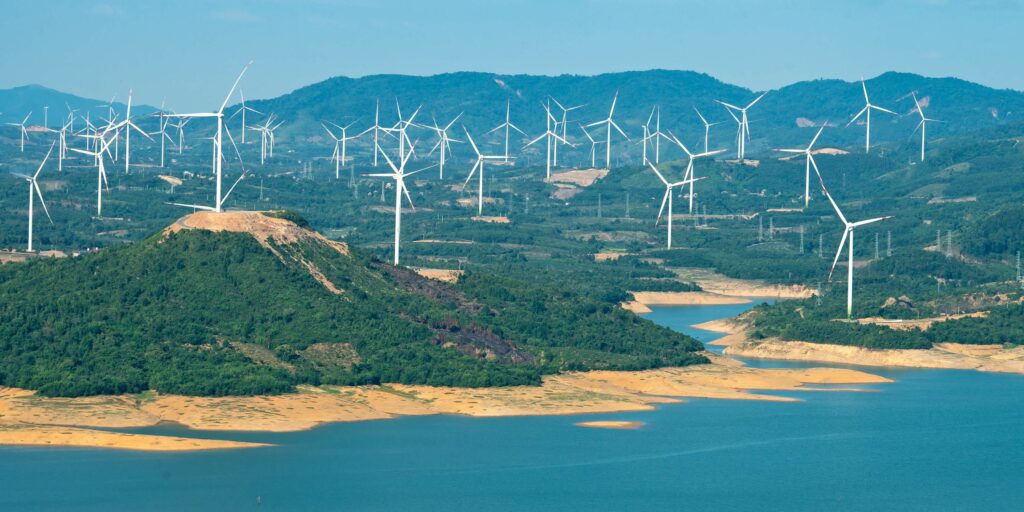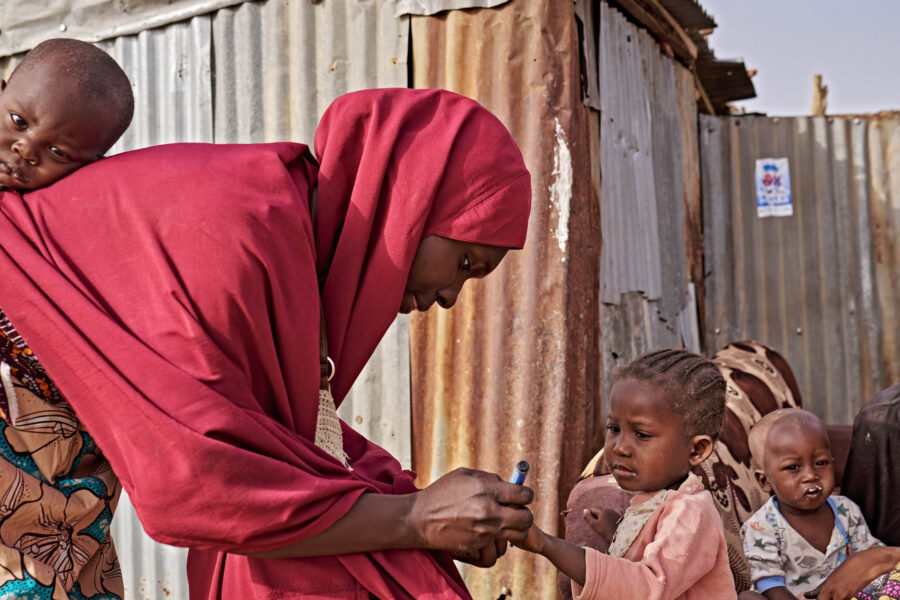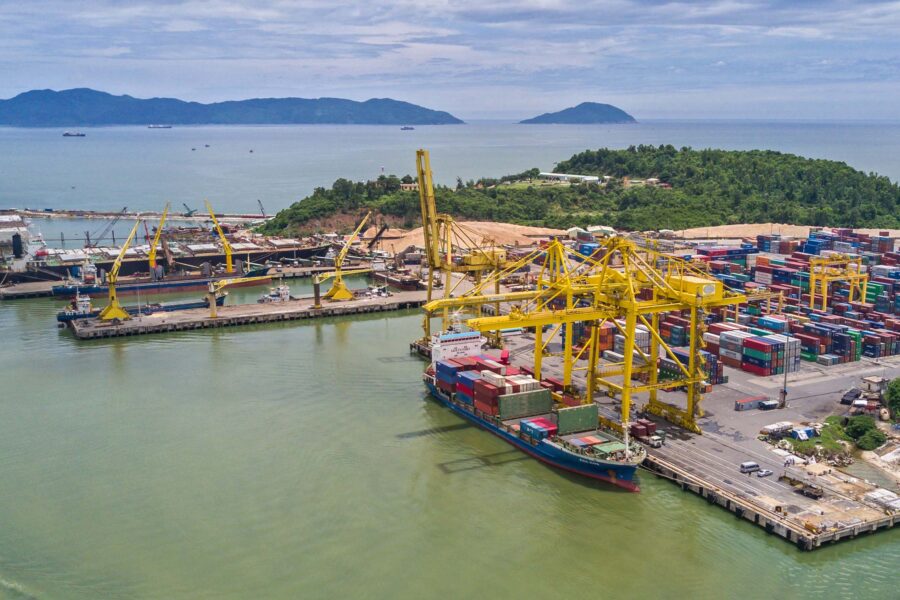Leapfrogging to green industry in middle-income countries
How can MICs, currently driving much of the world’s growth, ensure that their rapid industrialization is sustainable?
Climate — Global

Middle-income countries (MICs) are a diverse group of nations representing about a third of global output and nearly two-thirds of the world’s poor. Many MICs are experiencing rapid economic growth and are making significant progress in reducing poverty and improving living standards, education, and technological innovation. They are increasingly integrating into the global economy, providing access to new markets and resources.
The choices that MICs make at this juncture will determine whether they progress upward to higher income, culture, intellect, biodiversity, and spirituality, or stagnate in the middle-income trap, or slide downward. If MICs choose and steer wisely, they might be able to decouple economic growth and emissions.
As wealthier countries offshore their industry and manufacturing, much of the burden of finding ways to decarbonize will fall to MICs. The greatest challenges lie in the mindsets of both sets of countries. This will determine what kind of transfer happens, how the transfer is designed and operationalized, and the kind of inputs that would be drawn from the wider international community. A higher consciousness must lead the mindset.
In Meaningful Manufacturing, Jim Platts (1945-2022) asked the question: “Why do we make things?” right at the beginning. This question must be answered by those who act.
Developed countries’ mindset
When developed countries offshore their industry and manufacturing to MICs, the former has a moral duty to consider and mitigate the environmental and social impact of their move. They must not think that these problems will now be in a foreign country, and thus no longer their concern.
Those who know have an ethical obligation to act. How they act depends on their consciousness. Until Germany banned uranium mining in the country in 1990 due to economic, environmental, and social concerns, the country was the fourth largest uranium producer in the world. For the same reasons, France also stopped uranium mining on their soil in the early 2000s.
To supply 8,000 tonnes of natural uranium per year for France’s 18 nuclear power plants and 56 nuclear reactors, uranium mining was moved overseas. Niger, a lower MIC, has been supplying the French nuclear fuel cycle group Orano Cycle from its Somair mine for over four decades. The giant mine is 63.4% owned by Orano Cycle and 36.6% by Niger state mining assets company SOPAMIN.
Uranium mining and transportation are energy-intensive activities that draw heavily from fossil fuels. Large amounts of tailings (the waste material that remains after uranium is extracted from the ore) are produced and often stored in open pits or ponds (so-called industrial sediment ponds). These can release greenhouse gases (GHGs) such as methane and carbon dioxide. Not only that, uranium tailings can retain up to 85% of the ore’s original radioactivity. Unsafe disposal of radioactive waste and water pollution have caused serious environmental concerns in Niger.
As France’s nuclear power generation is set for substantial expansion in the coming years, so will the need for uranium. Access to uranium supply topped the agenda of French President Emmanuel Macron’s historic visit to Mongolia – another lower MIC – in May 2023. Will France do better in Mongolia than it did in Niger?
Less developed countries have less financial and technological resources and weaker governance to control emissions and to solve toxic waste and systemic pollution problems. In a partnership, trustworthiness of the stronger partner is critical for the cooperative relationship to shine.
The definition of a developed country usually includes criteria such as high income, industrialization, high standard of living, and advanced technology. Besides these material criteria, development should also be measured in terms of moral leadership.
Middle income countries’ mindset
If a country has a climate target and is serious about it, it will need to be discerning about the kind of industry it welcomes and proactively minimize the negative environment and social impact. To synchronize a country’s climate strategy and foreign direct investment strategy, government leaders need to be clear about their development priorities and goals, and develop the virtues of judgement and strength. Contradiction between the two strategies could be seen in the shift of Chinese steel production capacity to Southeast Asia in recent years.
MICs should seek out education and training for their policymakers, regulators, researchers, and business leaders on green industrial policies and practices. Technical assistance in developing green business models, supply chains, and national green industry strategies in MICs are also valuable. UK Partnering for Accelerated Climate Transitions (UK PACT) and the Stockholm Environment Institute (SEI) are shining examples of capacity builders.
Research collaboration that focuses on developing clean technologies for use in MICs can simplify technologies for local implementation, reduce cost, and improve accessibility. Besides this, databases and clearinghouses of clean technologies that are accessible to MICs can provide curated and actionable information and resources to businesses, policymakers, and the public. MICs should also leverage the Paris Agreement Technology Mechanism to access lower-cost financing for deploying climate technologies.
Dutiful enforcement of environmental laws will deter companies from polluting and ensure that they are held accountable for any environmental damage they cause. Where environmental standards are lacking, MICs should set strong ones.
Creating a green future
If MICs want to avoid competing downward to be a dumping ground for polluting industries from wealthier countries, they need to identify the kind of opportunities that offer big returns on investment. They must create technology roadmaps toward sustainable energy, health, medicine, and employment.
For example, the tropical soils of Southeast Asia were never glaciated and are a rich, untapped resource of microorganisms that have huge potential for use in industry, agriculture, and conservation. Mobilizing the knowledge communities to get this research going in Southeast Asia and drawing people to work here would be a highly worthwhile pursuit.
Road ahead
Everyone is part of the carbon problem, and everyone is part of the solution too. Increasing international cooperation on green industrial policies should be pursued at the upcoming COP28. These policies can include subsidies for renewable energy and modal shift from road to rail, tax breaks for energy-efficient businesses and green infrastructure investment, and regulations that limit emissions from industrial processes. Debt relief can also provide MICs with the financial resources they need to invest in green industrial policy.
International cooperation on green industrial policies can level the playing field between countries and create a more conducive environment for businesses that are investing in clean technologies. Diffusion of best practices, innovation, and effective green industrial policies will also increase in a collaborative and peer learning environment, as illustrated by the High-Level Regional Environmentally Sustainable Transport Forums in Asia. Policy dialogues are key to ensuring that investments and capacity-building support tomorrow’s policies rather than yesterday’s priorities.
Fundamentally, movers and shakers need to keep returning to Jim Platts’ question of “Why do we make things?” Philosophy only has meaning in action. This requires confronting power, learning to recognize power in action, and responding, also with action.





